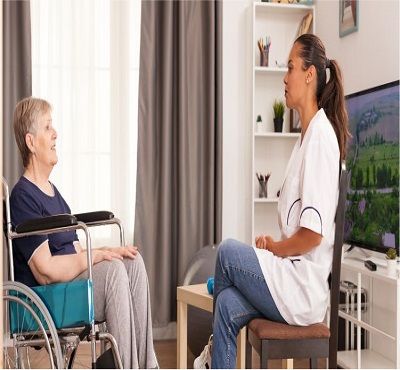We do not request reimbursement of costs
(such as repayment for obtaining medical records)
from veterans nor from people who suffer from multiple sclerosis.
- Call today for a free evaluation
- 1-888-774-7243
Social Security Disability for Dysautonomia
Is Dysautonomia A Disability?
Dysautonomia is a general term used to describe an assortment of medical disorders related to the autonomic nervous system. Responsible for controlling the body’s involuntary functions, the autonomic nervous system (ANS) regulates respiration, temperature, digestion, blood pressure and heart rate.
Adverse medical conditions associated with autonomic nerve disorders include orthostatic high blood pressure, inappropriate sinus tachycardia, and neurocardiogenic syncope. The effects of dysautonomia vary between individuals based on the specific disease and its severity.
The disorder can be a primary condition or occur due to the presence of another disease like diabetes. It is estimated that more than 1 million people in the United States are afflicted with dysautonomia. Very few people know about how to apply for Disability for Dysautonomia, and unfortunately continue to suffer without the support they need.
Chermol & Fishman, LLC is a leading disability law firm that helps people overcome challenges caused by disability. Our legal team provides comprehensive legal assistance to people seeking disability benefits for dysautonomia and many other ailments.
What is Dysautonomia?
Although the exact cause of the condition is unknown, some contributing factors are believed to include heredity, viral illnesses, autoimmune diseases, and physical trauma to the brain or spinal cord.
People with dysautonomia may experience debilitating symptoms like headaches, dizziness, vertigo, nerve pain, excessive fatigue, and rapid or slow heart rates.
Other signs of the condition include panic and anxiety not related to a psychological issue. The disease is difficult to diagnose because many of the signs and symptoms overlap with other medical conditions. Obtaining an accurate diagnosis often requires the collaborative effort of several specialists.
While some individuals experience mild symptoms, others afflicted with the disease can be incapacitated by their symptoms. In severe cases, death can result from acute respiratory failure, an abnormal heart rate, or a digestive system malfunction. Because there is no cure for dysautonomia, the treatment generally consists of various medications and therapies prescribed to ease the symptoms.
Can You Get Disability for Dysautonomia?
 Whether you qualify for Social Security disability benefits depends upon the information contained within your medical records. This information includes the history of treatment documented by your physician, the results of blood tests, CT scans, MRIs, x-rays, etc. The documents must also contain details on your response to medications and physical therapy. This is important, as there is no single entry in the Social Security Administration’s (SSA) Blue Book for dysautonomia. The Blue Book is a colloquial term for the SSA’s listing of qualifying medical impairments contained within its body of disability regulations.
Whether you qualify for Social Security disability benefits depends upon the information contained within your medical records. This information includes the history of treatment documented by your physician, the results of blood tests, CT scans, MRIs, x-rays, etc. The documents must also contain details on your response to medications and physical therapy. This is important, as there is no single entry in the Social Security Administration’s (SSA) Blue Book for dysautonomia. The Blue Book is a colloquial term for the SSA’s listing of qualifying medical impairments contained within its body of disability regulations.
The severity and totality of your disabilities will determine your eligibility for dysautonomia disability benefits. Because the disorder afflicts specific systems, you should file your claim using the Blue Book section that best describes your symptoms. These can include Section 4.00 Cardiovascular System, Section 5.00 Digestive System, or Section 11.00 Neurological.
If you do not qualify according to these criteria, the totality of your symptoms may still entitle you to a medical-vocational allowance.
The SSA will review your records and determine whether your dysautonomia prevents you from acquiring and performing gainful employment.
It is better to consult an experienced disability lawyer.
Filing a disability claim for dysautonomia can be challenging since there is no single category of medical impairment under which to file. As a result, you should retain the services of an experienced SSA disability claims attorney.
As your legal representative, we can work closely with your doctor to compile the necessary documentation. We can support your Disability for Dysautonomia application throughout the entire process, help you fill out any required forms, and represent your case in front of the court.
Having a Disability Lawyers in Illinois who is familiar with the intricacies of the claims process can increase your chances of approval. If you have been denied benefits, schedule an appointment to discuss your right to an appeal. You may still be able to receive benefits.
During this challenging time, you should have someone on your side that is committed to helping you to receive the services you need to remain financially independent. Our team has years of experience handling such cases. You can rely on us for all your legal needs.
For a Free Evaluation
Monday : 9am–5pm
Tuesday : 9am–5pm
Wednesday : 9am–5pm
Thursday : 9am–5pm
Friday : 9am–5pm
Saturday : Closed
Sunday :Closed

